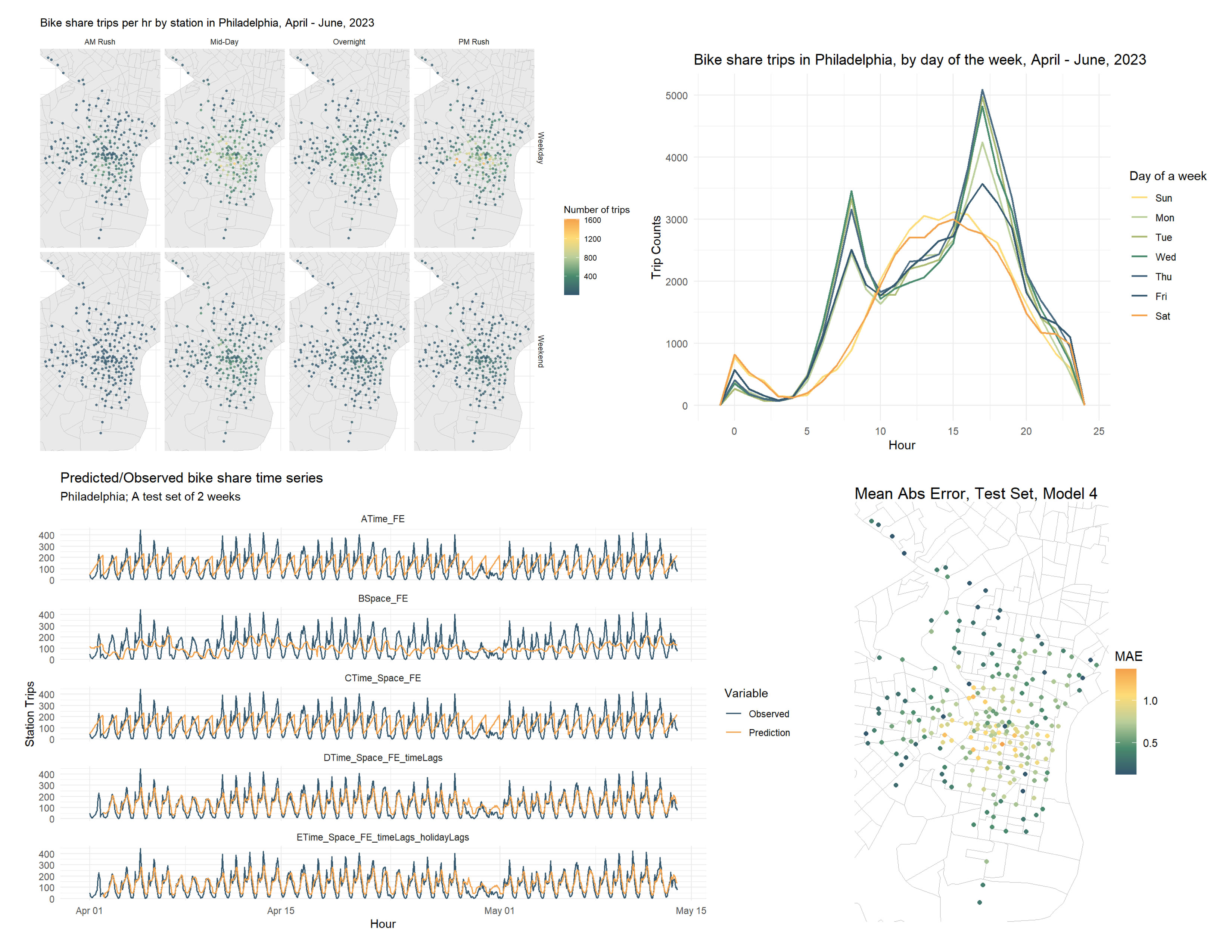Space-Time Prediction of Q2 Bike Share Demand in Philadelphia
- Time: 2024.04, Academic work
- Collaboration: Individual Work
- Location: Philadelphia, Pennsylvania
- Medium: R
- Link: Space-Time Prediction of Q2 Bike Share Demand in Philadelphia
Project description
One of the big operational challenges of bike share systems is “re-balancing” - getting bikes to stations that are anticipated to have demand but lack bikes. Figuring out how to do this is one of the keys to operating a successful system. This project aims to use predictive modeling to operationalize intelligence in this use case.
Here we will predict only the demand (ignoring the supply of bikes, network routing of rebalancing trucs etc.,). If we knew the bike station capacities, we could see when demand for bikes might drive stations to run out of bikes, and then move excess bikes from elsewhere. A program manager for a bike-share system could reasonably anticipate demand and allocate bikes ahead of time.
The demand for parking spaces, uber trips, bike share, road access and a whole host of urban transportation phenomena are time and space dependent, and modeling them frequently involves simply controlling for the day, hour, location, weather and other temporal phenomena. Quite simply, the demand for bike share trips today at my location at 5PM is probably highly correlated with the demand last week at the same time.
